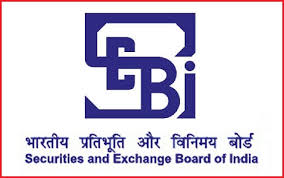
Statutory auditors will now have to mandatorily report to the Centre all corporate frauds amounting to Rs. 1 crore or above.
By specifying a threshold of Rs. 1 crore, the Corporate Affairs Ministry (MCA) has now done away with the requirement to report immaterial frauds to the Centre.
The Ministry has also now spelt out the procedure for fraud reporting to the Centre. First, the auditor has to inform the Board or audit committee and seek their views within 45 days.
On receipt of audit committee’s views, the auditor would have to within 15 days send his report to the Centre.
For frauds involving amounts lower than Rs. 1 crore, statutory auditors now need to report this matter only to the audit committee of the company, the Ministry has said amending rules for this purpose.
The reporting to the audit committee would have to be done not later than two days of his knowledge of the fraud.
Prior to this Ministry move, the company law required statutory auditors to report to the Centre all frauds by the company or against it.
Vishal Seth. Managing Director and National Leader IFRS and Financial Reporting Advisory, Protiviti India, Indian arm of a global consulting firm, said this threshold of Rs. 1 crore was a “fairly reasonable” given the magnitude of transactions in India.
“This is a big change in India. There was a need for a threshold and the Ministry has now specified it,” Seth told Business Line here.
Meanwhile, KPMG in India said in a note that the Ministry’s move on fraud reporting would increase responsibility of auditors. The amended rule prescribing the timelines for fraud reporting indicates the effort the Ministry is putting to increase the efficiency and timelines of such reporting, KPMG has said.
Related party transactions
The Ministry has now amended rules to specify that an audit committee would be empowered to provide “omnibus approvals” for related party transactions (RPTs) so long as certain conditions are met.
The conditions specified by the Ministry are largely similar to the Listing Regulations.
Yogesh Sharma, Partner, Grant Thornton India LLP, said this will certainly assist in ease of doing business without compromising the intent of the law.
Moreover, omnibus approval process was already included in the SEBI listing guidelines and hence this change will align the two requirements, he added.
For RPTs, the Company Law enacted in 2013 required every individual transaction to be approved by the Audit Committee. This made the approval process inefficient and delayed the decision making. For instance, each repeat transaction also required a separate approval.
The company law amendments in 2015 enabled “omnibus approval” for RPTs on annual basis that meet specified conditions prescribed in rules. The Ministry has now specified the conditions under which such omnibus approvals could be provided.
Reacting to the Ministry’s move, CA Institute President Manoj Fadnis welcomed the threshold specified by the Ministry. “This will bring certainty to the auditors as to the frauds that are to be reported to the central government and those that are to be reported to the audit committee,” he told Business Line .
Greater vigil
- The auditor must first report the fraud to the company’s audit panel
- The audit panel will have to give its views in 45 days
- Within 15 days of that, the auditor will have to send his report to the Centre
- Frauds amounting to less that Rs. 1 crore will need to be reported only to the company’s audit panel




